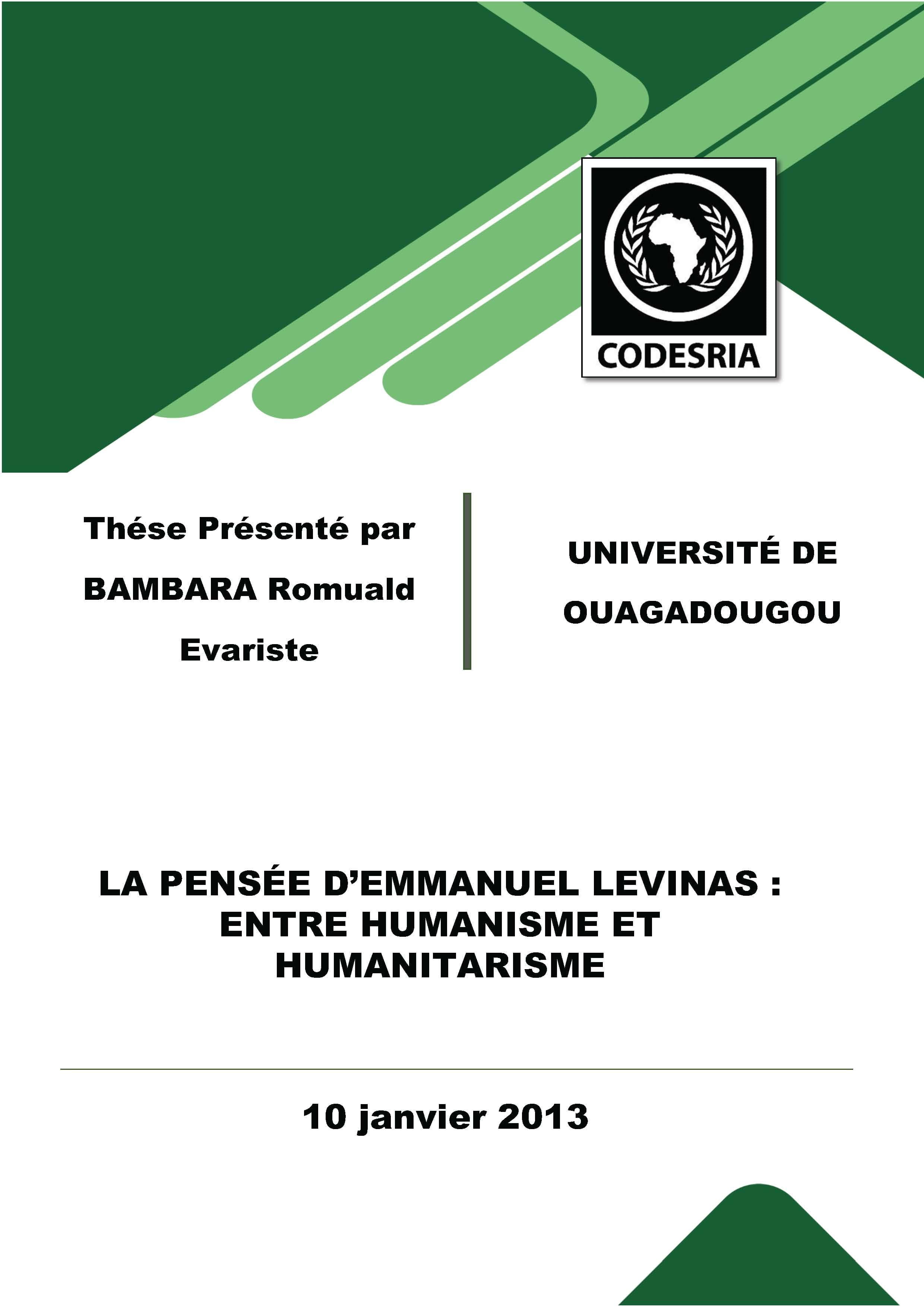La pensée d'Emmanuel Levinas : entre humanisme et humanitarisme
Keywords:
Philosophie, éthique, socialité, altérité, humanitarisme, humanisme, LEVINAS, EmmanuelSynopsis
How can we talk about “humanism” when considering Emmanuel Levinas’ philosophy (1906-1995)? Isn’t this philosophy rather some form of "humanitarianism"? To address this issue, we need to go through the whole themes of ethics of this thinker for whom the otherness of others constitutes the absolute priority. What he calls “ethics” is in fact a relation between the Same and the Other in which the Other is more important than the Same; Ethics derives from the meeting with such primary otherness, that Lévinas calls the “face” of the Other. It is the Epiphany of the face of the Other that makes sense: trace of the Infinite, the face appeals to an unlimited responsibility. Welcoming it is neither an intentional act, nor a deliberate
choice, and it constitutes a human act different from knowledge or learning. It is not an isolated act either: the ethical face-to-face discussion is from the outset open to the third party, to a “third man” whose appearance brings sociality and opens the political dimension of life in the city. At this very point it takes into account this social horizon, ethics as for Lévinas remains marked by the preeminence of the Other: the concepts of election, of constraint, radical hospitality, and unconditional commitment testify of this attempt to understand sociality by maintaining a primary and irreducible otherness of the others. It is precisely such an approach which is qualified by Lévinas as “humanism of the other man”. This latter achieves a surpassing of ordinary humanism, “egologic”, insofar as it is not centered on the Self and the identity. It can neither be confused with a humanitarian thinking, with the meaning of easy discharge of emotions on the fate of others. The humanism of the Other man is a challenging thinking, and as such it testifies of both a great philosophical rigor and critical human stakes.
Downloads
References
La théorie de l’intuition dans la phénoménologie de Husserl, Paris, Vrin, 1930 ; rééd. Paris, Vrin, 1989.
De l’Existence à l’existant, Paris, J. Vrin 1947 ; rééd. Paris, J. Vrin, 1993. En découvrant l’existence avec Husserl et Heidegger, Paris, Vrin, 1949 ; rééd. Paris, J. Vrin, 2001.
Totalité et Infini. Essai sur l’extériorité, La Haye, Nîjhoff Martinus, 1961 ; rééd. Paris, Librairie générale française, Coll. Le livre de Poche, n°4120, 2006.
Difficile liberté, Paris, Albin Michel, 1963 ; rééd. Paris, Librairie générale française, Coll. Le livre de poche n°4019, série Biblio- essai, 2006.
Humanisme de l’autre homme, Montpellier, Fata Morgana, 1972 ; rééd. Paris, Librairie générale française, Coll. Le livre de poche n°4058, série Biblio-essai, 1994.
Autrement qu’être ou au-delà de l’essence, La Haye, Nîjhoff Martinus, 1974 ; rééd. Paris, Librairie générale française, Coll. Le livre de poche n°4125, série Biblio-essai, 2006.
Noms propres, Montpellier, Fata Morgana, 1976. Le temps et l’autre, Montpellier, Fata Morgana, 1979 ; rééd.
Paris, P.U.F., Coll. Quadrige, 1983.
De Dieu qui vient à l’idée, Paris, Vrin, 1982 ; rééd. Paris, J. Vrin, 1998.
L’au-delà du verset : Lectures et discours talmudiques, Paris, Les éditions de Minuit, 1982 ; rééd. Paris, Minuit, Coll. Critique, 1982. Éthique et infini (dialogues d’Emmanuel Lévinas et Philippe Nemo), Paris, Fayard, 1982 ; rééd. Paris, Fayard et Radio-France, Librairie générale française, Coll. Le livre de Poche, n°4018, série Biblio-essai, 2006.
Transcendance et intelligibilité, Genève, Labor et Fides, 1984 ; rééd. Genève, Labor et Fides, 1996.
Hors sujet, Montpellier, Fata Morgana, 1987 ; rééd. Paris, Librairie générale française, Coll. Le livre de poche n°4246, série Biblio-essai, 1997.






